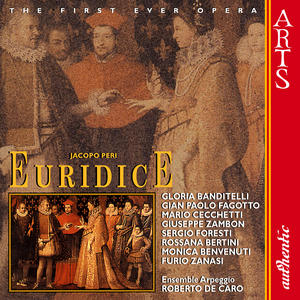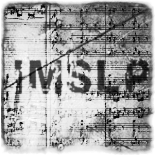Any visitor of the house of Count Giovanni de’ Bardi in 1580 Florence, had considerable chance to encounter a group of learned men. Among these members of the Camerata Bardi were poets, composers and scholars. One could find, for example, the composers Giulio Caccini and Vincenzo Galilei (yes, the father of…), but also the scholar Girolamo Mei, who was a specialist on ancient Greek culture. Mei performed profound research on music that was used during Greek plays. He concluded that all of the tragedies and comedies in ancient Greece were sung monophonically. The players were able to move their public to tears by their singing. The members of the Camerata Bardi were so impressed by this finding that they set themselves to discover musical means to achieve the same in their own time.
In our current thinking it is obvious that music is connected with emotion. Therefore, it is hard to imagine an era in which that connection was not that important. Yet, in the Middle Ages and in the Renaissance, the primary concern of a composer was the way in which the music was assembled (com-posed), rather than the emotions it evoked in the listener. The polyphonic fabric was primary an aim rather than a means. Of course, the resulting music can move the listener emotionally, but that was of minor importance. Thus, what happened in Florence was quite revolutionary.
Because of their aim, the learned gentlemen in Bardi’s house had profound objections to the polyphonic music of their time. They certainly would have rejected a composition like this: (mp3 – source). In this motet for six voices by Nicolas Gombert (c.1495-c.1560), the listener has to deal with a confusing pell mell of impressions all at the same time. According to the Camerata Bardi there has to be only one main voice at a time. This would allow the music to move the listener. And so they invented monody: only one singing voice accompanied by simple chords: (mp3 – source).
The initial use of this new style was on stage. The composers Jacopo Peri and Jacopo Corsi were the first to write an opera that employs monody. In 1598 they finished Daphne. Unfortunately the score has been lost. The earliest opera that is has been preserved is Euridice by Jacopo Peri and Giulio Caccini. The audio example in the previous paragraph is from this opera. The publication of this opera in 1600 marks a very important turning point in the history of western music. Therefore, this year is generally considered the year that marks the start of the Baroque era.
Recommended cd’s
Details: Amazon.com or Emusic.com


